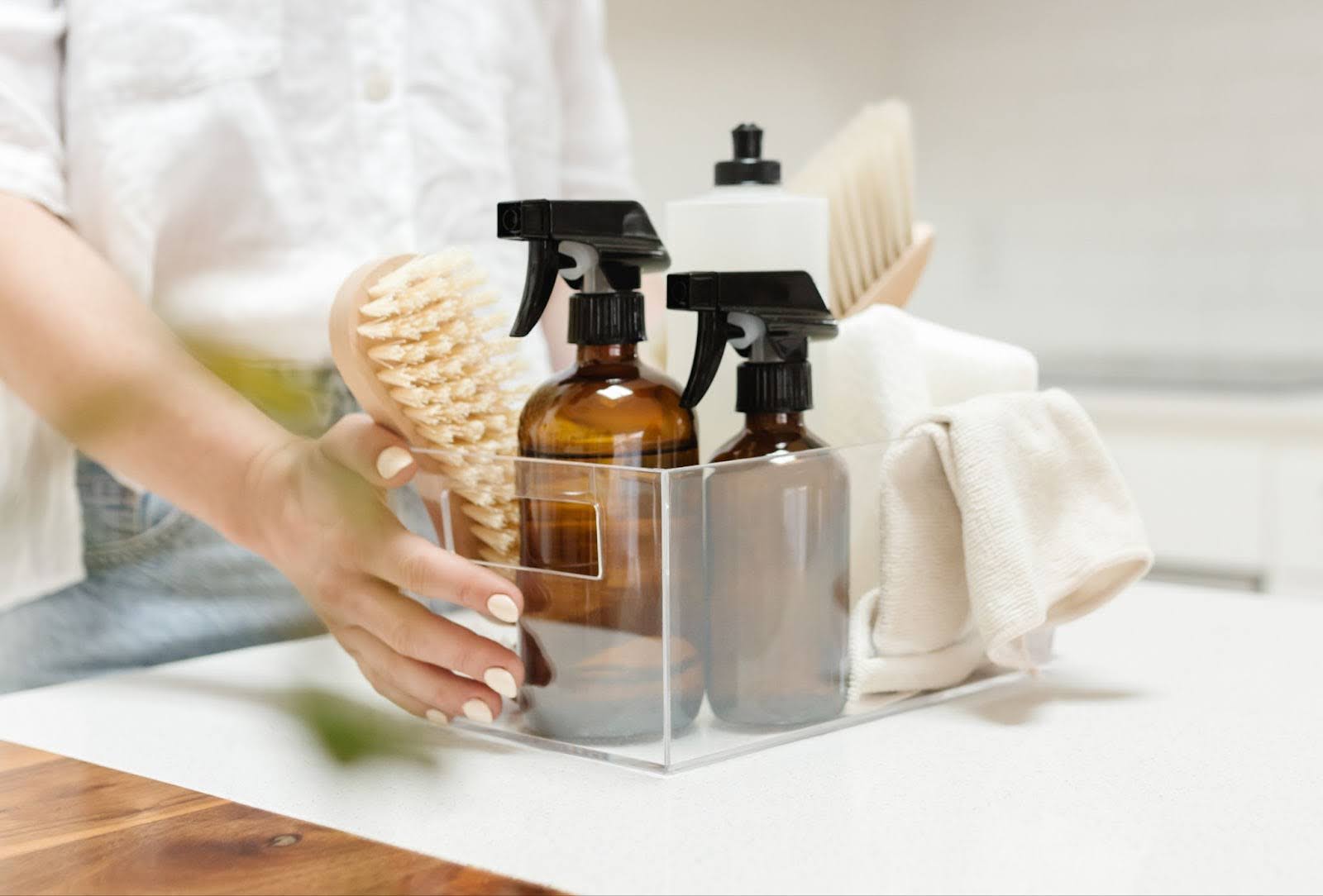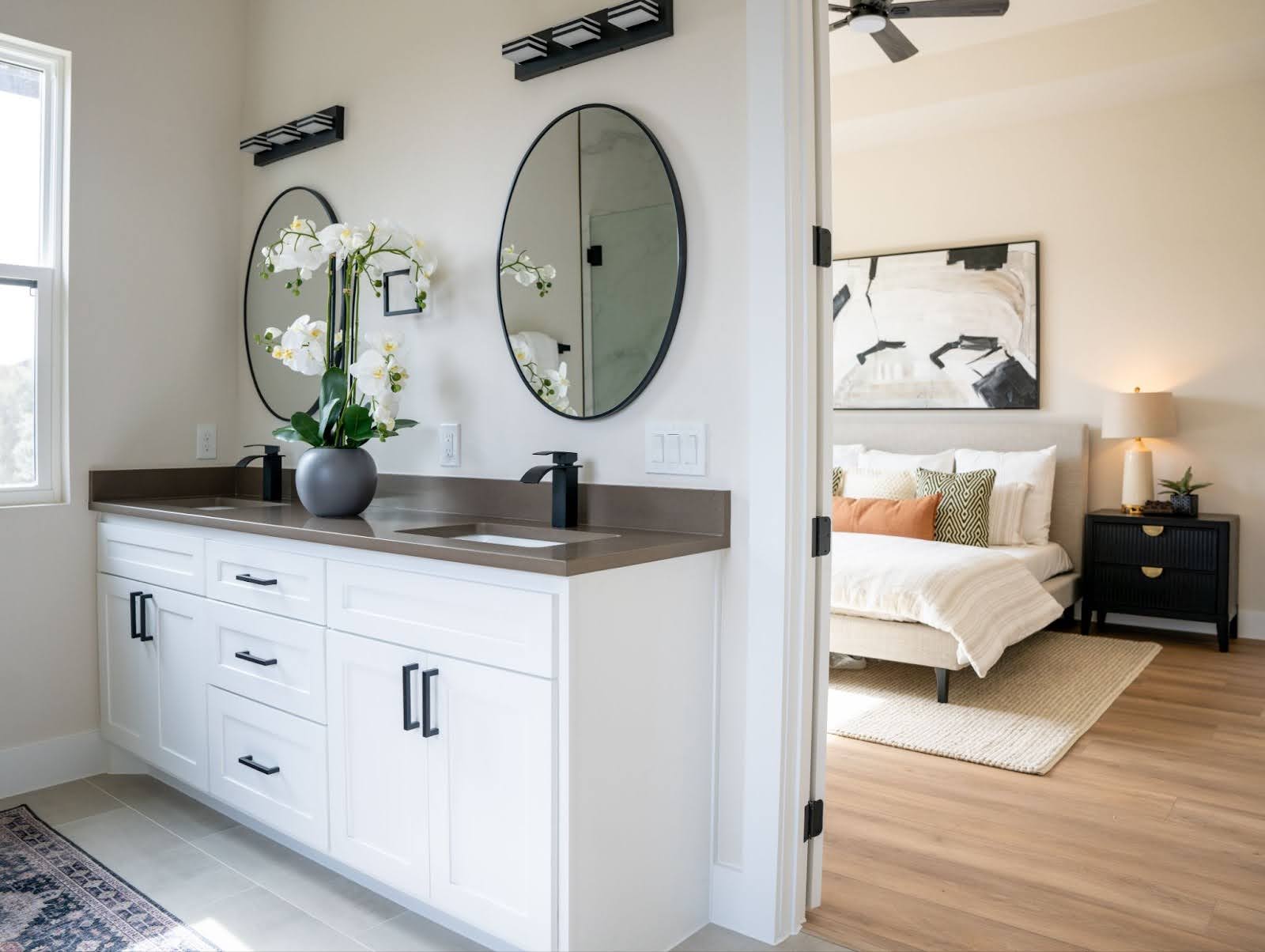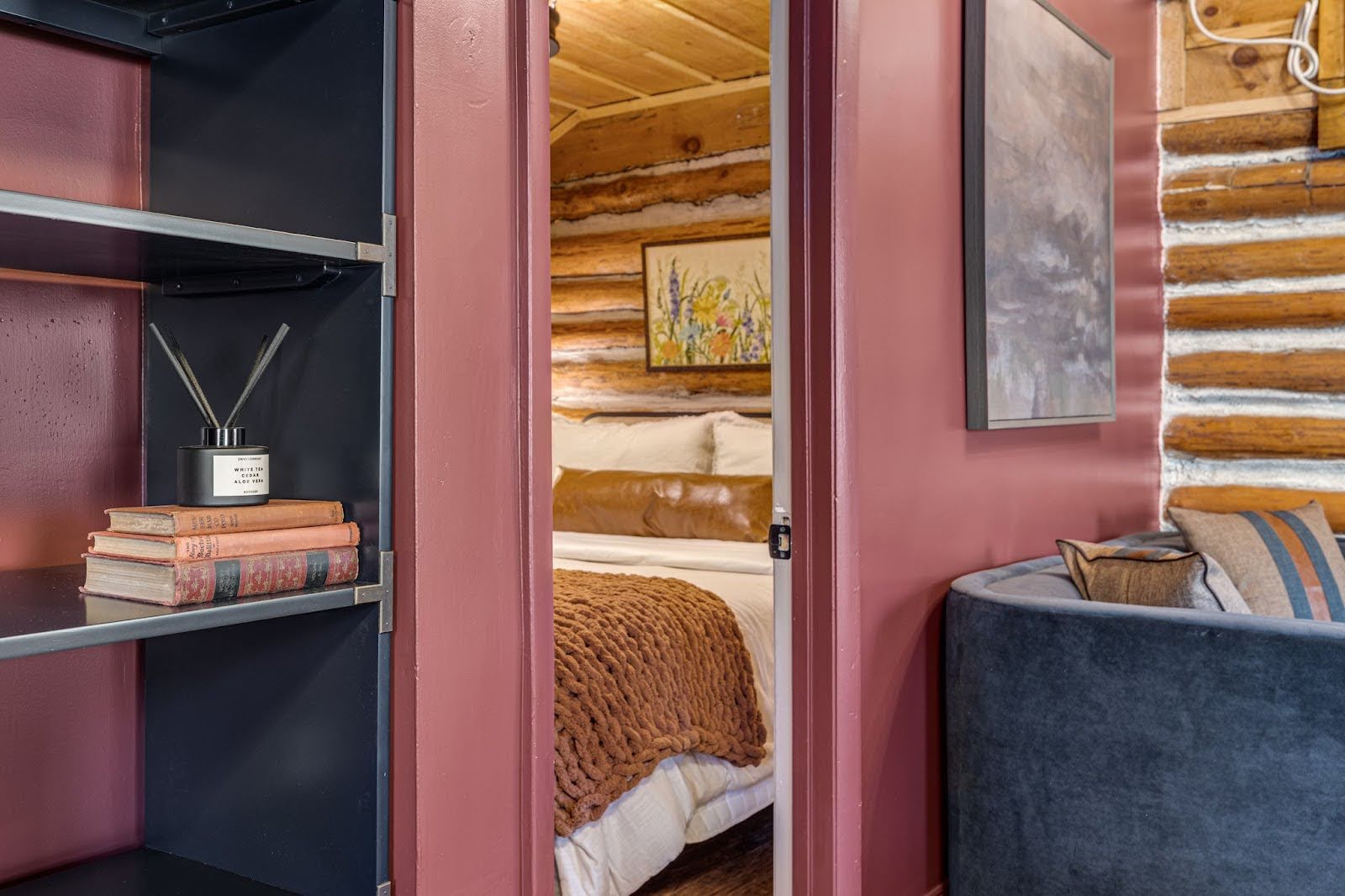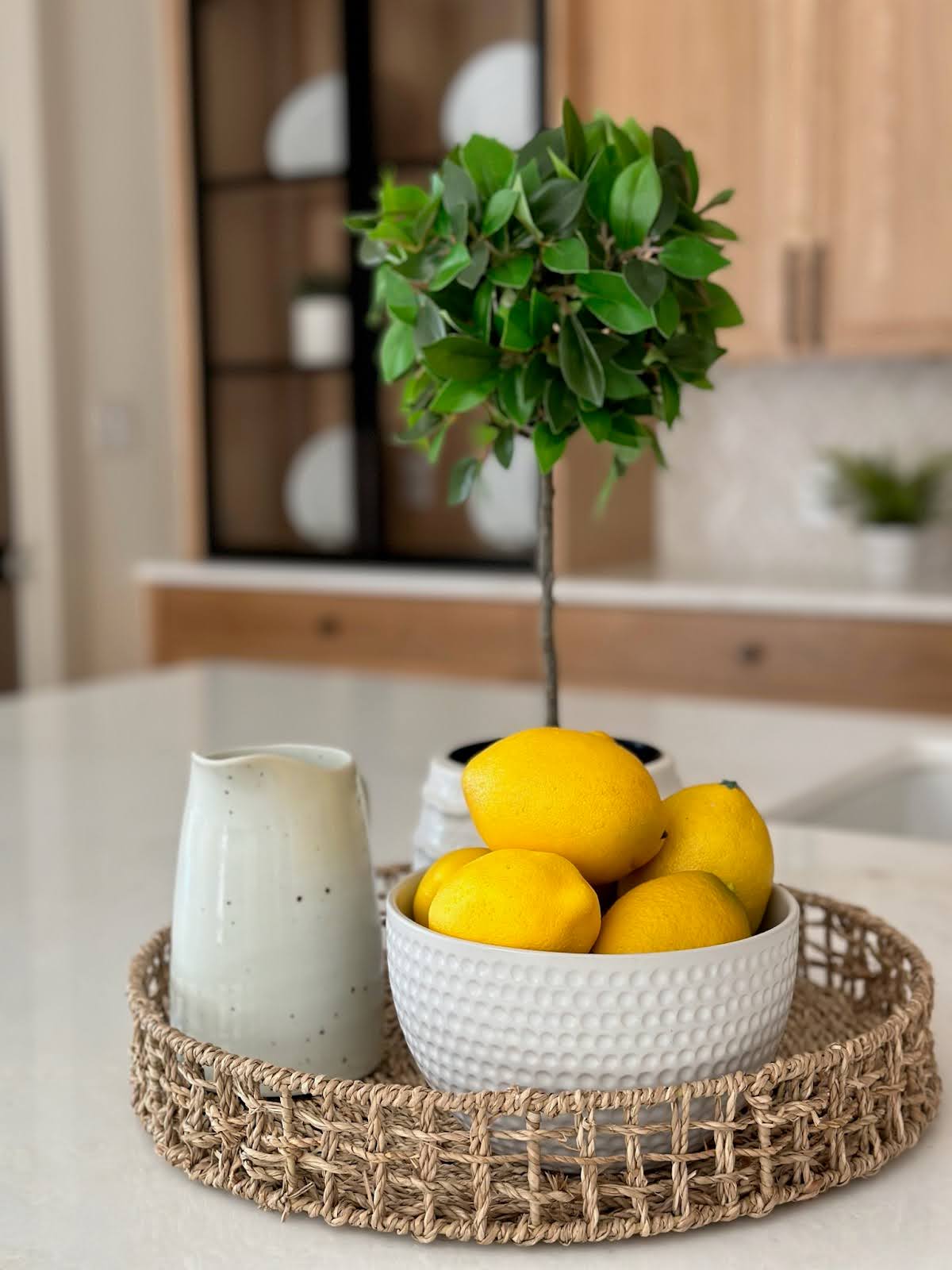Home Staging Tip: The Power of Scent in Selling Homes
Sep 30, 2025
When staging a home, we often focus on the visuals—but scent is just as important. A fresh, neutral fragrance sets the tone, making a space feel cared for, move-in ready, and inviting. But what scents are the most appealing to buyers? And how do you overcome tricky odor challenges like cigarette smoke or mustiness?
Let’s explore how subtle scent strategies can complement your staging work and handle even the most stubborn scent problems.
Why Bad Smells Lead to Bad Sales
Here’s a wild fact: smell is the only sense directly connected to the limbic system, the part of the brain that controls emotion and memory. That means a single whiff of something unpleasant—or wonderful—can instantly trigger a deep emotional reaction.
If a home smells bad, buyers may not stick around long enough to admire the crown molding or custom tile. They may perceive the odor issue as permanent. And they might wonder: If it smells this bad, what else hasn’t been taken care of?
Buyers want homes that are already renovated or in great condition, requiring little to no work. In fact, 87% of buyers will pay more for a move-in ready property, according to the National Association of REALTORS®.
Even if buyers love the layout or location, odor can be a deal-breaker. It introduces doubt in the quality of the home, and once that seed is planted, it’s hard to unsee (or rather, unsmell) the issue.

How Stagers Can Tackle Common Odor Offenders
As stagers, our job is to turn every listing into a dream home by appealing to all five senses. Especially in occupied listings (where there are people living in the property while it is on the market), that means identifying and addressing any unpleasant smells.
First, figure out where the odors are coming from. Then, give your clients specific recommendations to improve the scent of their listing.
Here are some common issue areas and suggestions you could make:
- Cigarette smoke – This hangs on every porous surface, so you may need to remove all carpet and drapes and add a fresh coat of paint.
- Floors – Steam clean carpets and scrub kitchen and bathroom floors.
- Kitchen sink – Grind half a lemon in the food disposal before showings for a burst of clean citrus.
- Lightbulbs – This is a sneaky one! Oily residue from cooking and cigarette smoke sticks to the surface of bulbs (especially old incandescent or halogen bulbs). When they get heated up, the bulbs diffuse the odor back into the room. Remove bulbs with residue to reduce the smells.
- Mustiness – Make sure the AC filters are clean and have any mold professionally remediated.
- Outdoors – Don't forget about unkept pools and hot tubs, stinky trash cans, or other outdoor areas that smell foul. Make sure that buyers aren't faced with anything rank before stepping in the door.
- Pet odors – Absorb smells with vinegar, fresh kitty litter, coffee grounds, or baking soda. For more serious issues, like cat urine, you may need to suggest professional cleaning or new carpet.
- Pungent meals – Ask clients to avoid cooking strong-scented foods the night before showings or open houses.
- Stale air – Recommend that your clients open the windows daily, even for just 10 minutes, to promote air flow.
- Trash cans – Empty and scrub to eliminate lingering odors.
Above all, make sure everything is clean. Under beds, behind furniture, baseboards, fan blades, grout lines, the kitchen sink, inside the oven… the whole listing should be absolutely spotless.
Remember that interested buyers may peak under the sinks, open closets and cabinets, and check inside appliances. Thorough cleaning ensures they won't be surprised with an unexpected foul odor.

Choosing the Right Scents for Selling a Home
When adding subtle fragrances, it’s important to appeal to a wide range of buyers without overwhelming the space. Here’s a guide to what works—and what doesn’t:
Citrus: Clean, light, and universally appealing. Just be careful it doesn’t smell overly “cleaning product-y,” which can give the impression you’re masking other odors.
Eucalyptus: Spa-like and refreshing, but be careful not to overdo it! It can lean toward a menthol scent and may irritate sensitive groups, including children or asthmatics.
Rose or Gardenia: When staging a home, you want to appeal to all genders and ages. Rose or gardenia lean too feminine and reminds most of us of our grandmother.
Vanilla: While warm and familiar, vanilla can be too sweet or overpowering. Avoid tricks like “baking cookies” right before showings; buyers want a home that smells fresh, not staged.
Seasonal or holiday scents (Cinnamon, Pine, Pumpkin): Don't use scents that correlate with seasons or holidays, especially in a different season. Some buyers might find it cliche and see the home as slightly more dated.
Lavender: While many read lavender as relaxing and spa-like, some people with allergies might find it headache inducing. It can also feel old-fashioned.
The goal: Your home should smell closer to the subtle, inviting fragrance of a hotel or spa—fresh and clean, without evoking grandma’s kitchen, strong perfumes, or anything too sweet.
Always opt for subtle delivery methods like reed diffusers or air fresheners on a low setting. To ensure it’s not overpowering, do a simple “walk-through test”: leave the room for a few minutes, then re-enter and notice the scent. If it hits you too strongly, dial it back. The goal is a barely-there fragrance that signals cleanliness and freshness without overwhelming anyone—after all, some visitors are sensitive to strong smells.

Decor That Improves Perceived Smell
Home stagers can also suggest the idea of good smells through their accessory selections.
For example, save the boxes from any luxury perfumes, and use them when staging walk-in closets or bathrooms. Faux flowers and lemons also imply fresh smells, even though they are typically unscented.
When staging a bathroom, a dish of bath salts looks attractive and adds a wonderful smell. You can also create a spa feeling by placing a candle next to a rolled up towel.

The Stager’s Superpower: Creating Emotion
Ultimately, a beautifully staged home is more than just eye candy—it’s a multi-sensory experience. From sight to scent, we’re shaping how buyers feel in a space.
When you neutralize bad smells and add a light, inviting scent, you’re telling a story: “This home is cared for. This home is ready for you.”
So next time you’re prepping a listing, take a deep breath. Your nose might be your best staging tool yet.
Want more tips like this to help you stage with confidence? Check out our training courses and join the hundreds of stagers growing their businesses (and their nose for detail 😉) with Staging Studio.
Top photo by 615 Media.
Don't miss our next blog like this!
Join to receive the latest news for home stagers.


